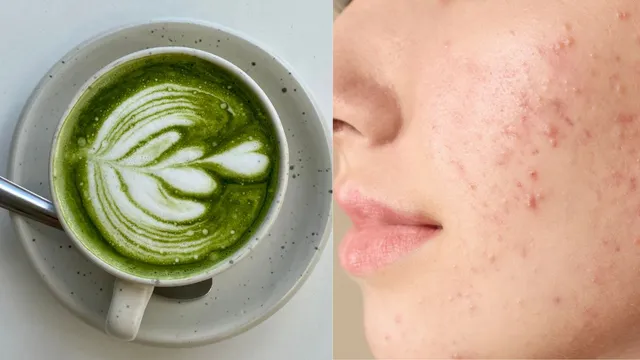- By Iram Hussain
- Wed, 13 Aug 2025 05:36 PM (IST)
- Source:JND
Matcha, the vibrant green powdered tea that’s taken the wellness world by storm is celebrated not just for its antioxidant content but also for its potential skin benefits, especially for those with acne-prone skin. But how true is the claim that matcha’s anti-inflammatory properties can help calm acne? Let’s explore the science behind this trendy ingredient. Unlike regular green tea, matcha is made from whole young tea leaves ground into a fine powder. This means you consume a concentrated dose of antioxidants, vitamins and minerals in every sip or application. The star compounds in matcha called catechins, particularly epigallocatechin gallate (EGCG) are powerful antioxidants known for their anti-inflammatory and antibacterial effects.
In a conversation with The Daily Jagran, Dr Meghana Rane, Consultant Dermatologist at Kaya Limited explained how the anti-inflammatory benefits of matcha can help acne-prone skin.
Matcha Heals Acne: Is It True?
Acne develops when pores become clogged with excess oil, dead skin cells, and bacteria, triggering the body’s immune response. This leads to inflammation, redness, swelling and irritation which worsens acne severity. Matcha’s anti-inflammatory compounds work to reduce this skin inflammation by neutralising free radicals and calming the immune response. When applied topically or consumed as tea, matcha may soothe irritated skin, reduce redness and support the healing of acne lesions. Additionally, its antibacterial properties help inhibit acne-causing bacteria while its ability to regulate oil production can minimise clogged pores.
ALSO READ: How To Make Cafe-Style Matcha Latte At Home: Step-By-Step Guide To Follow
Incorporating matcha into your skincare routine can be both enjoyable and beneficial. Drinking matcha tea regularly helps reduce systemic inflammation, promoting healthier skin from within. Starting with one cup a day allows you to monitor how your skin responds over time. On the topical side, matcha-infused skincare products such as masks, cleansers and serums deliver potent antioxidants directly to the skin. For a natural option, a simple DIY mask made by mixing matcha powder with honey or yogurt can effectively soothe redness and nourish the skin.
However, while matcha’s anti-inflammatory and antibacterial properties make it a promising natural aid for mild to moderate acne, it’s not a quick fix or replacement for medical treatment. Severe or persistent acne often requires professional care including topical or oral medications and procedures like chemical peels or laser therapy.
ALSO READ: Why Matcha Is Taking Over As The Latest Sipping Trend? Here's Why Everyone's Hooked
Matcha does offer genuine anti-inflammatory benefits that can help soothe and support acne-prone skin, making it a valuable addition to your skincare arsenal, especially for calming irritation and preventing breakouts. However, for stubborn or severe acne, consulting a dermatologist remains essential.

